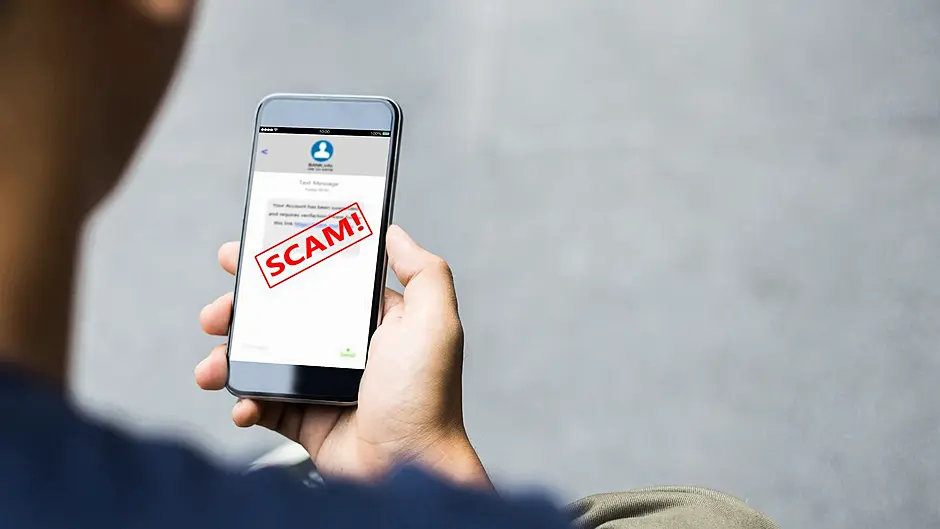
What is a scam?
Have you heard of ‘Quishing’? It’s the latest scam involving fake QR codes attached to parking meters. Once you scan the code, you are directed towards a website which requests credit card information and other personal data.
It’s not the only scam operating. An alert has been issued to warn people about receiving text messages that tell you to click on a link to claim an energy credit.
The texts link to a site that looks like gov.ie. The Government is not offering any such scheme and people are warned not to click on the link or enter any personal details.
In October, firms in West Cork were alerted after a bogus email was sent to members of Clonakilty Chamber of Commerce requesting payment for ‘outstanding bills’.
A scam is an illegal or dishonest scheme that aims to steal from or defraud people.
Scams target people of all ages and backgrounds through various methods.
They aim to trick you into giving away your money, personal, or financial details and are becoming more sophisticated.
You can avoid scams by following government agency warnings, such as those on the Garda website and the Department of Social Protection (DSP).
The Garda National Cyber Crime Bureau (GNCCB) has these tips:
- Avoid using QR codes for payments.
- Never download apps directly from QR codes
- Always check where a QR code leads to before scanning.
- Use multi-factor authentication (MFA) on your accounts for extra security MFA requires users to enter more information than just a password e.g. a one-time passcode sent t phone.
- Only scan QR code from sources you trust and recognise.
- Keep your computer and phone software updated regularly to protect against security threats.
How can I avoid scams when shopping online?
Use https://check.cyberskills.ie/ to verify the authenticity and safety of online shopping websites.
It is managed by Cyber Skills, in partnership with ScamAdviser and An Garda Síochána.
You can check that the website you are using is genuine and free from harmful software by providing the website URL (link).
What are the signs that it may be a scam?
Some scams are difficult to recognise. Be cautious of:
- Unsolicited contacts from a person or company unexpected
- Deals that seem too good to be true
- Requests for personal details
- Pressure to respond or transfer money quickly.
- Unusual payment methods
- Vague contact details
- Misspellings or grammatical mistakes
- Requests to keep the offer quiet.
How do I protect myself from being scammed?
Use CheckMyLink to verify the authenticity and safety of online shopping websites.
It is managed by Cyber Skills, in partnership with ScamAdviser and An Garda Síochána.
You can check that the website you are using is genuine and free from harmful software by providing the website URL (link).
Other ways to protect yourself are to know who you are dealing with by researching the legitimacy of the company contacting you.
You should check terms and conditions for clarity and verify contact details, avoiding websites with only a contact form.
You should also look for diverse online reviews from reputable sources like Trustpilot.
Question anything that feels off. Be careful of offers that seem too good to be true – they usually are! Avoid clicking or downloading untrusted content and never allow remote access to your personal computer.
You should also check website security by looking for the closed padlock symbol and ‘https://’ in the address bar.
How do I protect my personal information?
Your personal information is valuable to criminals and can be misused or sold on.
Only give personal information in calls you initiated. Verify charity legitimacy by calling their official number.
Be careful of contacts requesting sensitive information.
Think twice about sharing personal information in an email or when chatting online.
Think carefully about the personal information you post online. If you get a request for personal details, do not respond straight away.
Never enter personal information on a public computer.
How do I protect my money?
- Never send money by bank transfer unless certain you are sending to a trusted person.
- Always use secure payment methods such as a credit card, debit card or PayPal (that offer a payment protection scheme)
- Limit online storage of payment information or use a secure digital wallet.
- Keep banking apps updated report suspicious transactions quickly.
- Regularly check and verify transactions on your bank statements.
What should I do if I have been scammed?
If you think you have been scammed, stop all contact with the scammer.
Do not make further payments. Tell your bank or card provider immediately if you paid by credit card or debit card.
Report the incident to your local Garda station as a criminal matter.
If possible, collect records (emails or other communications) related to the scam.
Secure your devices by resetting passwords and updating anti-virus software.
Report the incident to consumer protection agencies for advice and to prevent other people scammed.
Is there any hope of getting my money back?
You might be able to get your money back, depending on what happened and how you paid the scammer.
If you notice an unauthorised transaction on your account, contact your bank immediately.
In most cases, your bank must refund you for unauthorised payments.
If it was a debit card, credit card or PayPal payment, you should request a transaction reversal through ‘chargeback’ from your bank or credit card provider.
The Competition and Consumer Protection Commission (CCPC) has more information about chargeback.
If it was a bank transfer you should act quickly by contacting your bank because bank transfers are difficult to trace.
However if you used a money transfer service, it is unlikely you will be able to get your money back if you used a wire service.
It is also unlikely you will get money back if you used vouchers or gift cards for payment.
Where can I get more information?
You can get advice and information on scam calls and scam texts from the Commission for Communications Regulation (ComReg).
The Banking and Payment’s Federation Ireland’s (BPFI) FraudSMART initiative has some useful resources on protecting yourself from fraud.
The Competition and Consumer Protection Commission (CCPC) has information about how to watch out for scams. Tel: (01) 402 5555
What are the common types of scams?
- Scams come through different channels, such as email, texts, letters, websites and phone calls. Here are some common scam types:
- Accommodation scams: Fake sites ask for a deposit for non-existent housing.
- Antivirus software scams: Scammers claim your computer has a virus, install software and demand payment.
- Charity scams: Fake charities or impersonating real ones to ask for donations.
- Classified scams: Scammers pose as legitimate sellers on classified websites for fake goods or services.
- Copycat websites: Unofficial sites mimic government departments or services for a high fee.
- Door-to-door scams: A door-to-door seller asks for cash upfront for a service that is never provided.
- Fake ticket scams: Fraudulent tickets or non-existent events.
- Free trial scams: Deceptive ads that lead to costly membership or subscriptions.
- Holiday rental scams: Fake sites offering non-existent holidays or villas.
- Investment scams: Deceptive financial opportunities promising high returns.
- Loan and credit scams: Upfront fees for guaranteed loans.
- Malware or ransomware: Scammers install software to access files or demand payment.
- Mobile phone scams: Premium-rate calls for missed call scams.
- Phishing emails: Bogus emails trick you into sharing personal and financial information.
- Prize and lottery scams: Fees required to claim fake prizes.
- Quishing: is where fake QR codes are used to trick you to scan a code taking you to a fraudulent website to ask for personal information or installing malware on your device.
- Romance and relationship scams: Fraudsters on dating platforms asking for money, gifts or your personal details.
- Sextortion: Threats based on false claims of recorded compromising videos.
- Smishing attacks: Text message scams tricking you into opening malicious links.
- Social media scams: Scams through social media, including quizzes and false endorsements.









